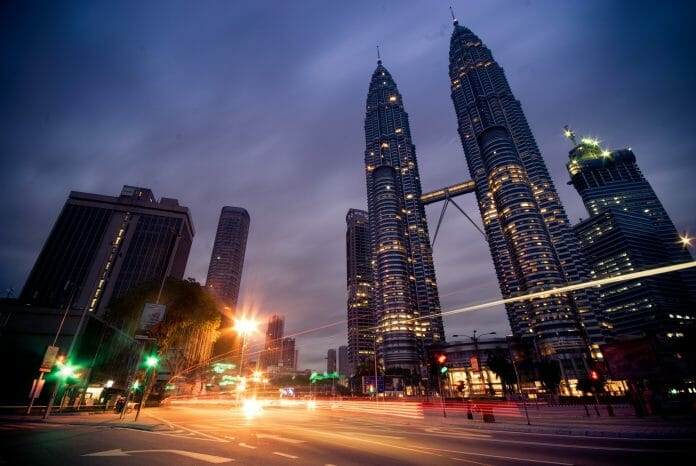In the Greek legend of Achilles, his mother Thetis – desiring to make him immortal – dips baby Achilles by the heel in the River Styx.
This would prove to be fatal for him as the part of him left untouched by the river would later become his one and only weakness – in spite of how strong he would come to be – it would be the heel of Achilles which would be responsible for his unfortunate fate. A poison arrow shot directly at his vulnerable heel in combat would result in his miserable death. The Malaysian government, as they spearhead efforts to combat the nation’s many economic issues, are responsible for leading the people in order to fulfil this ambition.
Immersing the people in the country’s action plan – while strengthening the economy – will nevertheless prove to be fatal for Malaysia as a whole if the mental health of all Malaysians is left unaddressed policy-wise. The introduction of Prime Minister Anwar Ibrahim’s “Malaysia Madani’, an action plan and guiding philosophy of the nation, ought to encompass the issues related to mental health plaguing the country if it wishes to comprehensively address the welfare of the people.
Mental health issues have been on the rise in Malaysia, and they affect people from all walks of life. Stress, anxiety, depression, and burnout have become alarmingly common, impacting not only individuals but also the overall productivity and well-being of the nation.
The Malaysian government’s unwavering commitment to addressing mental health deserves commendation, and its efforts, as outlined in the 2020-2025 action plan for mental health. One notable aspect of this commitment is the emphasis on fostering intra and inter-sectoral collaboration, a strategy that holds great promise for the nation’s mental well-being. Collaborations with platforms such as “Laman Minda, Medtweetmy, Medical Mythbusters” exemplify the government’s dedication to engaging diverse stakeholders in the pursuit of a mentally healthier Malaysia. Expanding on this collaborative spirit, the government can further strengthen its mental health infrastructure.
As an extension of its commendable efforts, the government could explore partnerships with non-governmental organizations (NGOs) that have organized impactful mental health programs. This approach has the potential to significantly increase the accessibility of mental health initiatives to a broader segment of Malaysians.
Organizations like the Malaysian Mental Health Association and MIASA, which specialize in mental health, bring a wealth of knowledge and experience to the table. Collaborating with these specialized organizations empowers the government to tap into this focused knowledge, ensuring that mental health initiatives are robust, evidence-based, and tailored to the specific needs of Malaysians.
Community-based organizations, with their deep-rooted connections, possess a profound understanding of the multifaceted challenges, traditions, and social dynamics specific to their communities. Their expertise is not confined solely to mental health issues, but they are adept at tailoring their efforts to address the specific mental health needs of their constituents. This brings to mind the Malaysian Philosophy Society, which highlights the significance of integrating philosophy with mental health endeavours. By delving into existential questions and employing critical thinking, organizations like the Malaysian Philosophy Society play a vital role in assisting individuals in reclaiming clarity of thought and finding solutions to their mental health concerns.
These organizations operate on the frontline of community engagement. They facilitate dialogue, build trust, and strengthen social bonds. Mental health is not a one-size-fits-all issue. The stressors and triggers that affect mental well-being can vary significantly from one community to another. In this context, the government’s support for such organizations takes on significant importance. It can manifest in various forms, each contributing to the overarching goal of fostering a “Malaysia Madani” (civilized Malaysia) that prioritizes the well-being of its citizens.
Collaborating with these organizations aligns with sustainability, as a mentally healthy populace contributes to long-term resilience and productivity. It promotes prosperity by enabling individuals to reach their potential, fostering innovation in addressing societal challenges, and encouraging respect for diverse perspectives. Trust is built through transparent and effective collaboration, and compassion is at the core of addressing mental well-being, reinforcing the government’s commitment to building a “civilized Malaysia” (Malaysia Madani) that prioritizes the well-being and unity of its citizens.
To harness the potential of such organizations, the government can encourage partnerships between NGOs and research institutions, developing systems for data sharing, as well as task forces that bring together relevant stakeholders to address mental health issues collectively. Other support the government can provide include financial support and nurturing grassroots leadership within these organizations, ensuring mental health is prioritized at the community level.
These collaborative endeavours align with the values of Malaysia Madani, which emphasize not only economic and legislative priorities but also the well-being and unity of the Malaysian people. In this way, the government can ensure that Malaysia Madani remains true to its core values while addressing the pressing issue of mental health in the nation.
As the country approaches World Mental Health Day on October 10, there have been exemplary initiatives that organizations across Malaysia have organized to address the issue and spread awareness. The Global Wellness, Cultural and Tourism Convention 2023 in October 27 held in Kuala Lumpur will see high-level industry stakeholders from governments and intergovernmental organizations, global companies, local Enterprises, research & academia, institutions & other entities from the wellness, cultural, and tourism sectors worldwide exploring opportunities to seek sustainable growth in progress in many industries, including health and wellness and is free for people to attend.
Inner Lynk, on October 15 will be organizing a “World Health Open Day”, a free event which will feature art therapy, art therapy, mental health testing and so much more so as to promote well-being through engaging workshops, insightful talks, and interactive activities.
The Malaysian Philosophy Society will also be hosting a free nationwide Live Love Labour festival, themed “The Art of Bersantai”, blending philosophy, arts, and mindfulness workshops, activities and a marketplace, offering Malaysians a platform to slow down and rejuvenate. This serves as a catalyst of national progress by prioritizing the mental well-being of the citizens.
It is my hope that such initiatives will inspire a chain reaction of wellness programs and events, spreading awareness on a monumental scale. By fostering a culture that values mental health, we can transform Malaysia into a nation that is conscientious about mental well-being. This cultural shift can be the cornerstone of a “Civilized Malaysia.”
It is my sincere hope that the success of these events serves as an inspiration to the government and policymakers. It demonstrates that when individuals and organizations come together with a shared purpose, meaningful change can be achieved.
By Pravin Periasamy, Student Researcher at Sunway University









